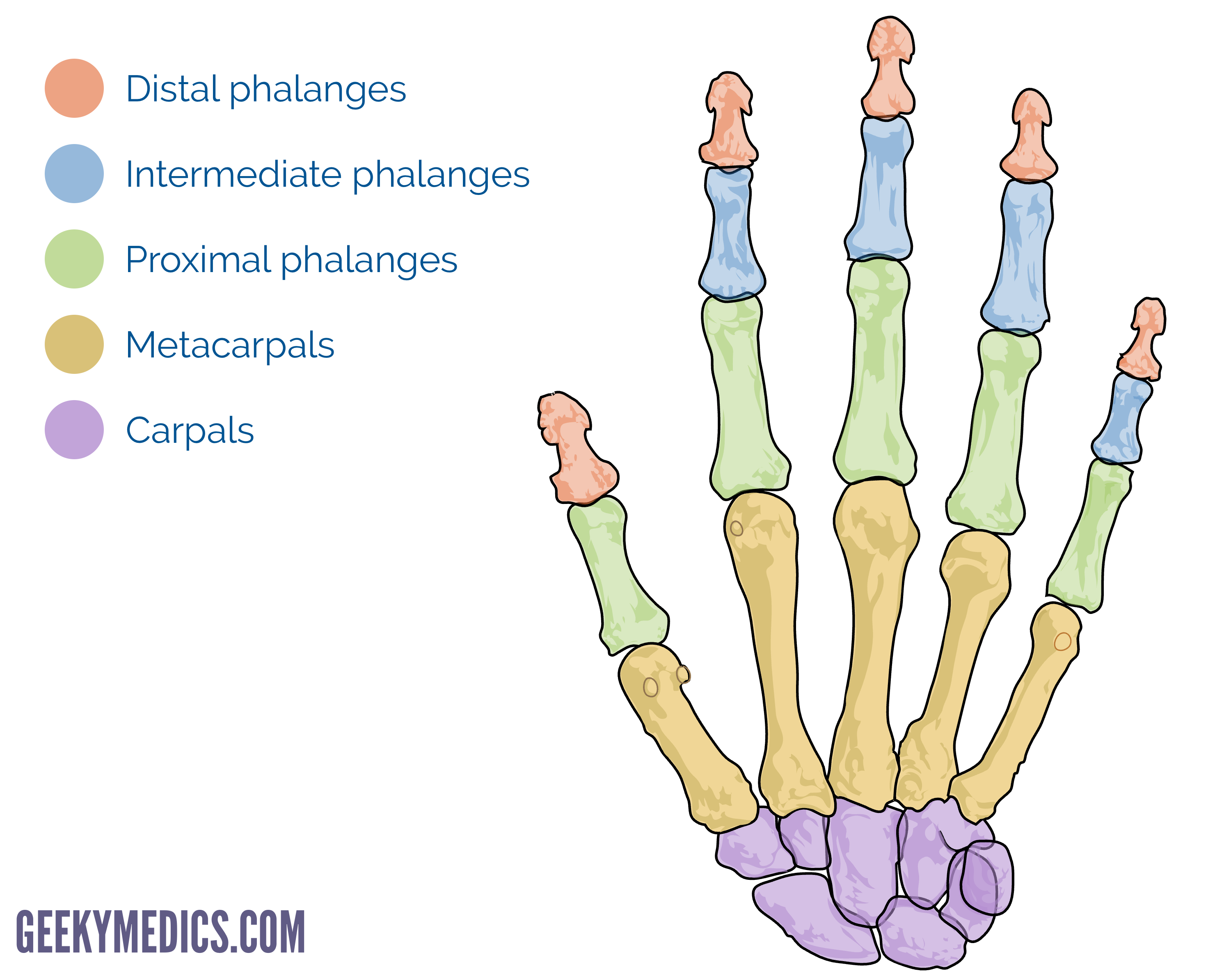
Bones of the Hand Carpal Bones Metacarpal bones Geeky Medics
The skeletal anatomy of the hand is composed of phalanges, metacarpal bones, and carpal bones. Its function is a product of the complex interactions between the power provided by the intrinsic and extrinsic musculature, the stability provided by the ligaments, and the structure provided by the bones, which serve as insertion and attachment sites for the muscles and ligaments. This article.

An Easy Guide to the Bones of the Hand and Wrist Hand bone anatomy
Last updated: August 16, 2020 Revisions: 35 format_list_bulleted Contents add The bones of the hand provide support and flexibility to the soft tissues. They can be divided into three categories: Carpal bones (Proximal) - A set of eight irregularly shaped bones. These are located in the wrist area.
.jpg)
Hand Bone Diagram resource Imageshare
To understand the anatomy of the hand we first must understand the anatomy of the forearm and wrist. The forearm consists of two bones, the radius and the ulna. Both forearm bones articulate with the carpal bones of the wrist distally. The radius articulates with the cashew shaped scaphoid bone, and the croissant or moon-shaped lunate bone.

Bones of the hand, posterior view with labels Appendicular Skeleton
The bones of the hand can be divided into three distinct groups: Carpals Metacarpals Phalanges Each group of hand bones is important in its own right, but the eight carpals are especially interesting because they are arranged in two distinct rows and are direct contributors to the formation of the wrist. We'll come back to the wrist later on.

Human hand skeletal structure depicting finger bones, joints
Human skeleton - Hands, Feet, Joints: The skeleton of the wrist, or carpus, consists of eight small carpal bones, which are arranged in two rows of four each. The skeleton of the ankle, or tarsus, has seven bones, but, because of the angle of the foot to the leg and the weight-bearing function, they are arranged in a more complicated way. The bone of the heel, directed downward and backward.

the anatomy of the hand and wrist, with labels on each arm showing
The wrist joint (also known as the radiocarpal joint) is an articulation between the radius and the carpal bones of the hand. It is condyloid-type synovial joint which marks the area of transition between the forearm and the hand. In this article, we shall look at the anatomy of the wrist joint - its structure, neurovasculature and clinical.

Hand Bone Anatomy news information Hand bones anatomy, functions
There are 27 bones within the wrist and hand. The wrist itself contains eight small bones, called carpals. The carpals join with the two forearm bones, the radius and ulna, forming the wrist joint. Further into the palm, the carpals connect to the metacarpals. There are five metacarpals forming the palm of the hand.
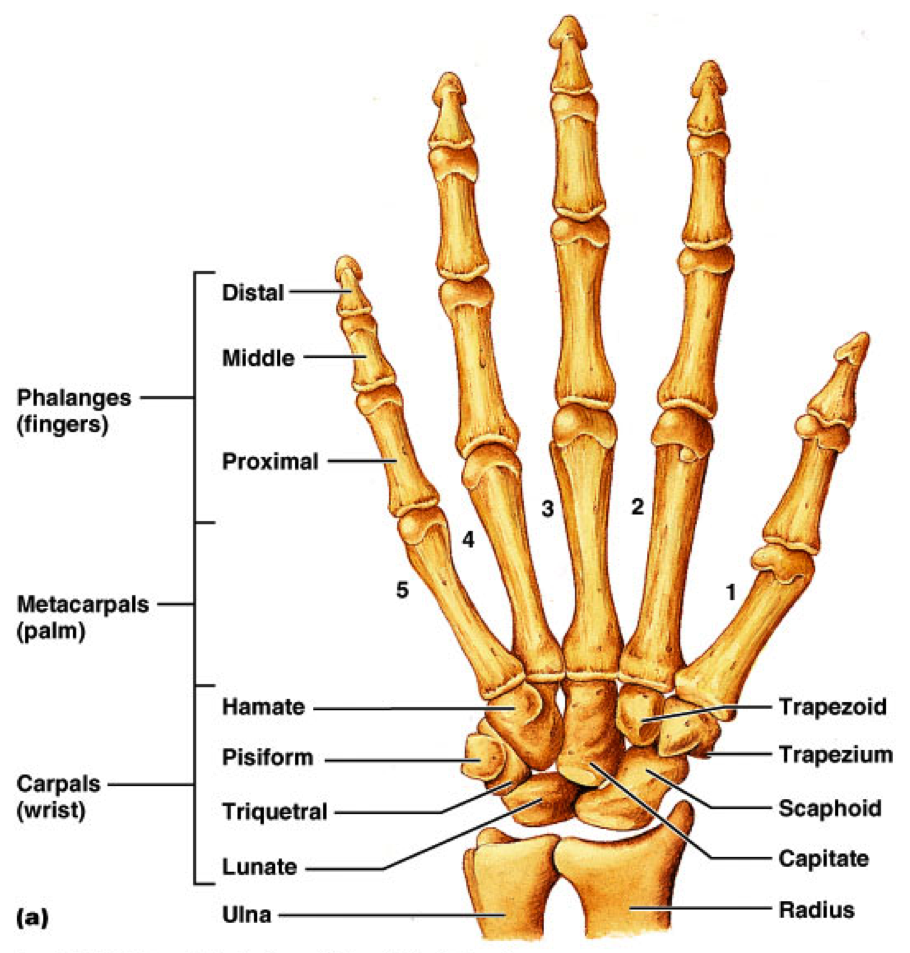
DIG1111 Digital Character Design DIG1111Professor Cesar Santalo Week
Skeletal System Bones Bones The distal ends of the radius and ulna bones articulate with the hand bones at the junction of the wrist, which is formally known as the carpus. Together with.
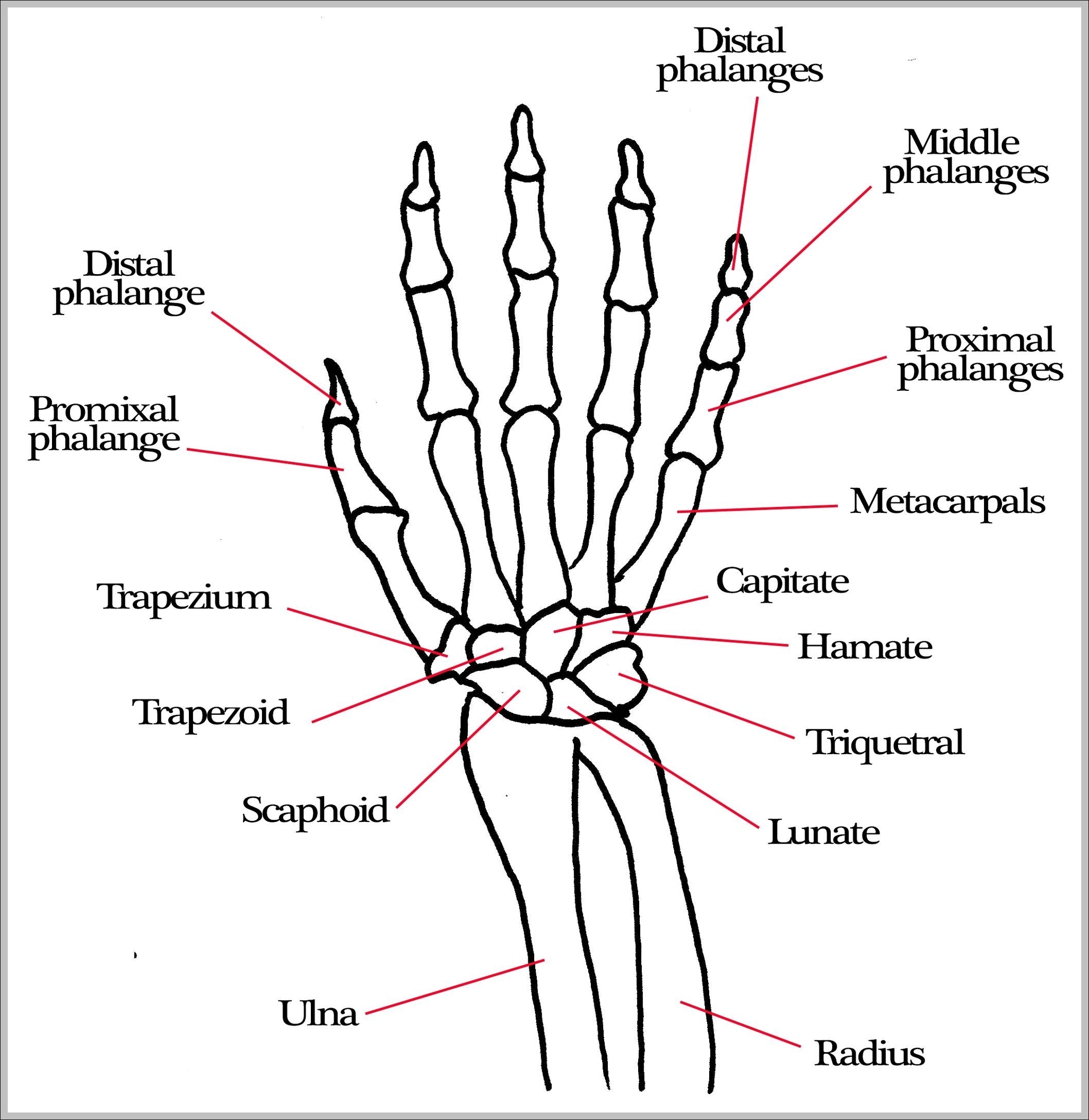
bones diagram Graph Diagram
The hand is made up of many bones: 5 elongated metacarpal bones, which are next to the wrist and help to make up the palm; 14 phalanges which make up the fingers. Each finger is made up of 3 phalanges; the thumb is made up of 2. These 19 bones collectively form 14 separate joints.

Bones of the hand and wrist. Anatomy and physiology, Human anatomy
Wrist. The wrist connects the hand to the forearm. It consists of the distal ends of the radius and ulna bones, eight carpal bones, and the proximal ends of five metacarpal bones. This arrangement.
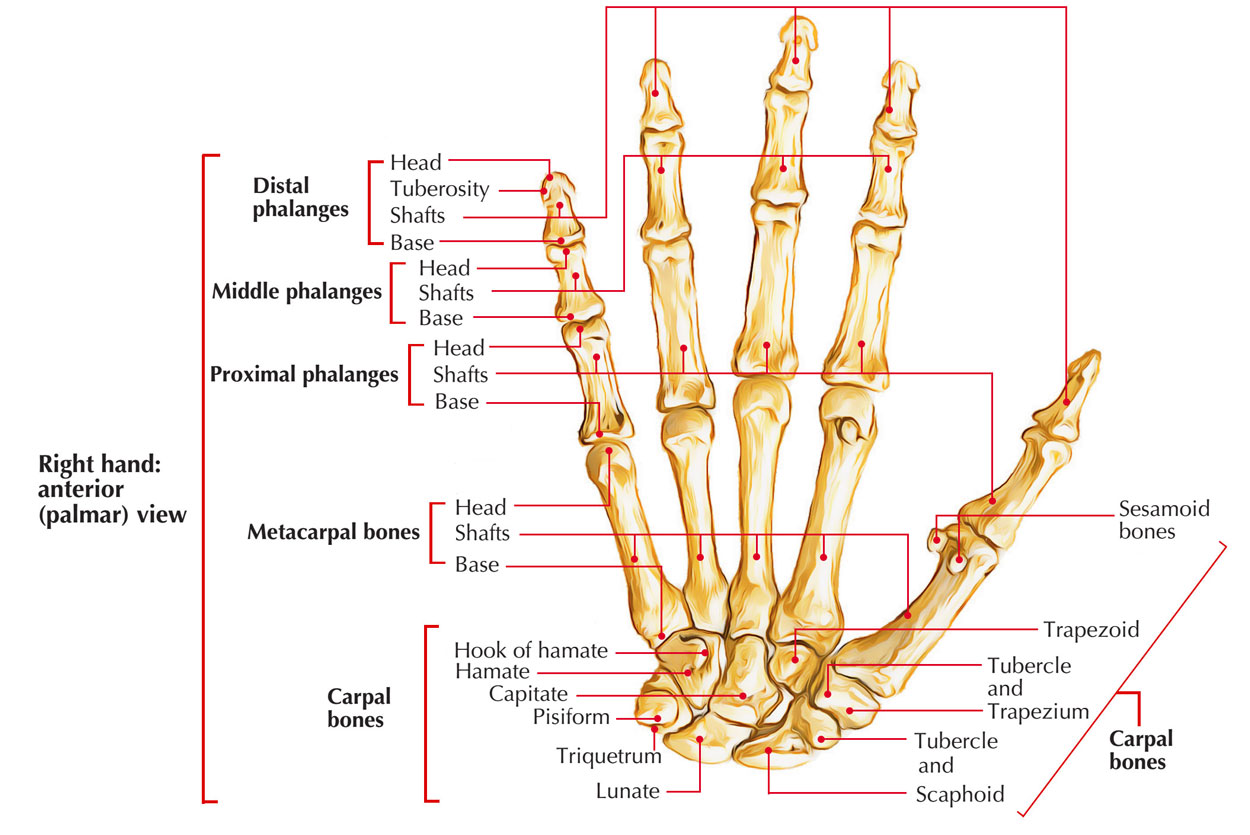
Bones of the Hand Anatomy Earth's Lab
Last Updated: Jul 16, 2019 Anatomy Explorer Capitate Bone Distal Interphalangeal (DIP) Joints of the Hand Distal Phalanges of the Hand Dorsal Metacarpal Ligaments Dorsal Ulnocarpal Ligament Hamate Bone Interosseous Membrane of the Arm Lunate Bone Metacarpal Bones Metacarpophalangeal (MCP) Joints Middle Phalanges of the Hand
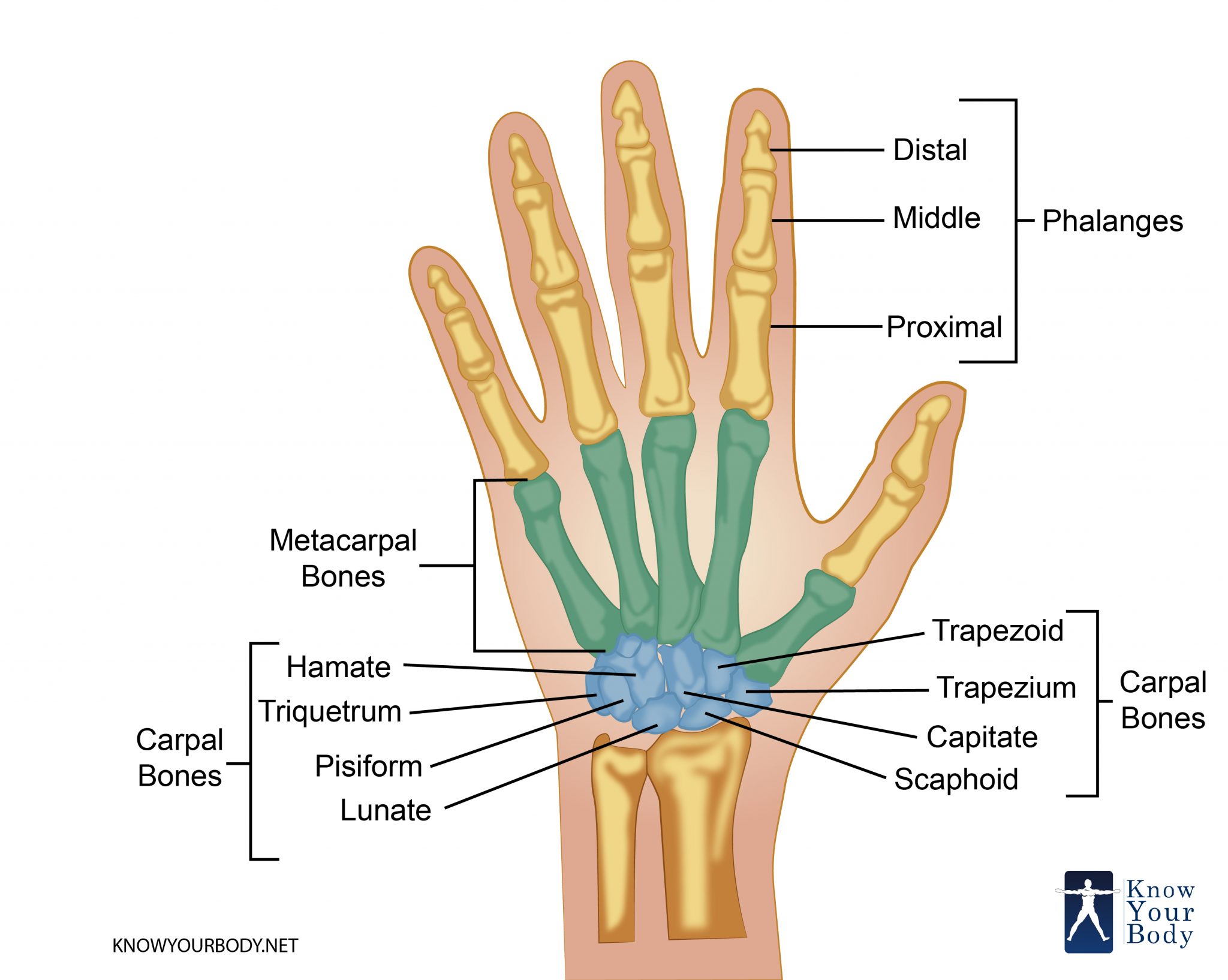
Hand Bones Anatomy, Structure and Diagram
The scaphoid bone crosses both rows as it is the largest carpal bone. The scaphoid and the lunate are the two bones which actually articulate with the radius and ulna to form the wrist joint. Hand. The human hand consists of a broad palm (metacarpus) with 5 digits, attached to the forearm by a joint called the wrist (carpus). Digits
1 Description of the main bones of the human hand. Adapted from [26
Fingers are one of the most used appendages, and the most delicate, so they are prone to injury. Finger injuries have the potential to slow down anyone. Fingers have a complex anatomy. Each finger has 3 phalanges (bones) and 3 hinged joints; the thumb has two of each. Ligaments connect finger bones and help keep them in place.
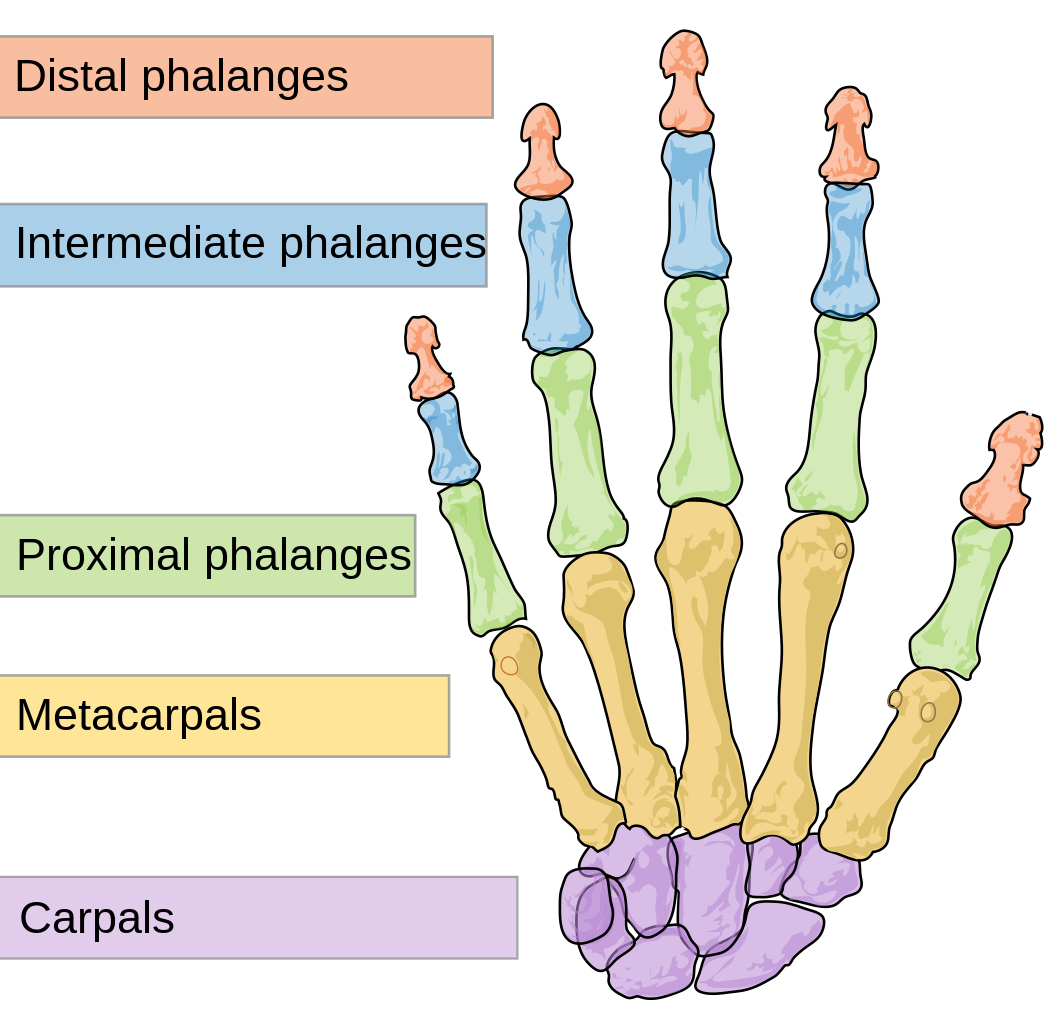
Undisclosed Injury Frans Nielsen's Fractured Hand
Each hand consists of 19 bones. The palm includes five metacarpals, and each finger except the thumb contains one proximal phalanx, one middle phalanx, and one distal phalanx. The thumb doesn't.

human hand bones Bing Images Human anatomy drawing, Human hand
Here are their names: Scaphoid Lunate Triquetrum Pisiform Trapezium Trapezoid Capitate Hamate Together, these bones connect the lower arm to the hand and fingers as the proximal carpal bones articulate with the radius and ulna to form the wrist joint.

hand Definition, Anatomy, Bones, Diagram, & Facts Britannica
The hand is the most complex region of the upper limb skeleton. It consists of 27 bones arranged into three groups. From proximal to distal, these are: The carpal bones, which comprise the root of the hand. The metacarpal bones, which compose the bony skeleton of the palm. The phalanges, which comprise the skeleton of the fingers.